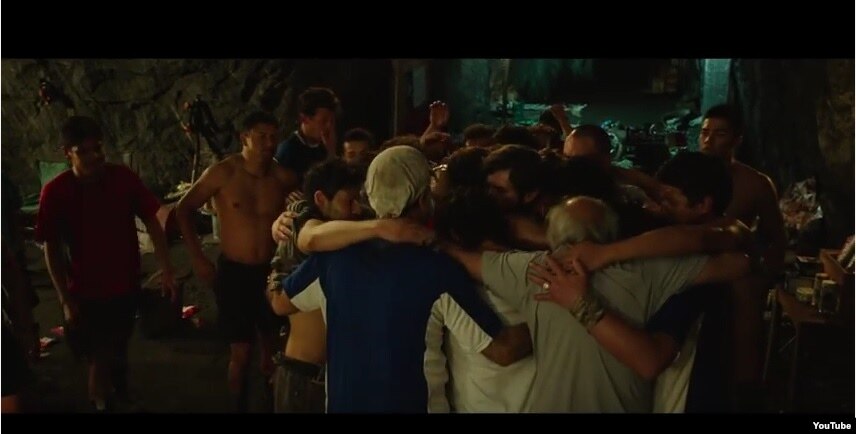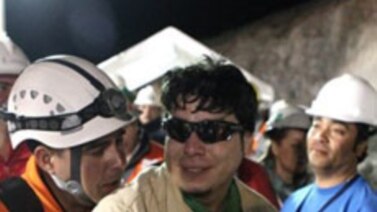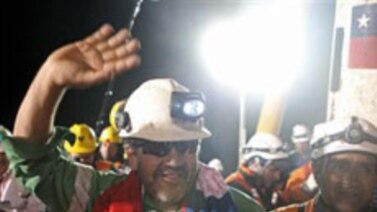
A new movie, “The 33,” tells about the famous 2010 mining accident in Chile.
The 100-year-old San Jose copper and gold mine collapsed over the heads of 33 mine workers. The collapse left the miners 700 meters underground.
The film’s director, Patricia Riggen, attempts to revisit 69 days of agony for the men below and their families above.
"Is that the only way in?"
"The only way in, the only way out."
Five years ago, lack of safety was an accepted fact of life at the San Jose mine. In the film, the 33 men start their long and difficult descent through a tunnel into their work area. But before too long, disaster struck.
After the tunnel collapse, the miners’ crowd into a five-meter wide space built to hold 30 men. The miners called it, the “Refuge.”
"One, two...33. We're all here..."
They have only three days' worth of food.
"We have to ration it carefully if we plan to survive down here until we are rescued. Rescued?"
Antonio Banderas plays miner Mario Sepulveda.
"Mainly for the people to know (he) is the guy that put some order down there and tried to stretch life as much as possible with the possibilities that they have and the resources that they have were minimal."
The film is divided into two separate worlds. One is the miners’ large cave, where feelings of hunger and hopelessness give way to prayer. The other is Camp Hope, a temporary encampment of families outside the mine's collapsed entrance.
"We want answers! It's been two days and no one has told us anything!"
Maria Segovia is the sister of one of the men. She is as central to the miners’ rescue as Mario Sepulveda is inside the mine.
Actress Juliette Binoche plays Maria.
"She was called the mayor of Camp Hope. She was the force to start with. I had to show in very short time, a few scenes, that the force of those women, you know, really took...made the plan to take off and save them."
With family, friends and the world watching, the Chilean government ordered rescue crews to keep working day and night. After 17 days, crews reach the miners. The film then shows the technically difficult and hazardous operation of bringing the men to the surface, one by one.
"My readings indicate that a massive rock has placed itself here. We're talking about 700,000 tons of diorite, or twice the mass of the Empire State Building."
“The 33” runs like a disaster movie. Its special effects and the human interactions inside and outside the mine add to the tension. It is the memory of the actual mine disaster and rescue operation that adds seriousness to the production.
The movie is short on character development. Aside from Sepulveda and Segovia, we learn very little about the rest of the players. The film also does not explain why the miners received no compensation nor what Chilean officials have done to improve mine safety.
I’m Marsha James.
"See you all men out there."
VOA’s Penelope Poulou reported on this story from Washington. Marsha James adapted her report for Learning English. George Grow was the editor.
Words in This Story
agony – n. extreme mental or physical pain
descent – n. a way of going down something
tunnel – n. a passageway
ration – v. to control the amount of something
hazardous – adj. involving risk or danger
compensation – n. payment; something that is done or given to make up for damage, trouble

